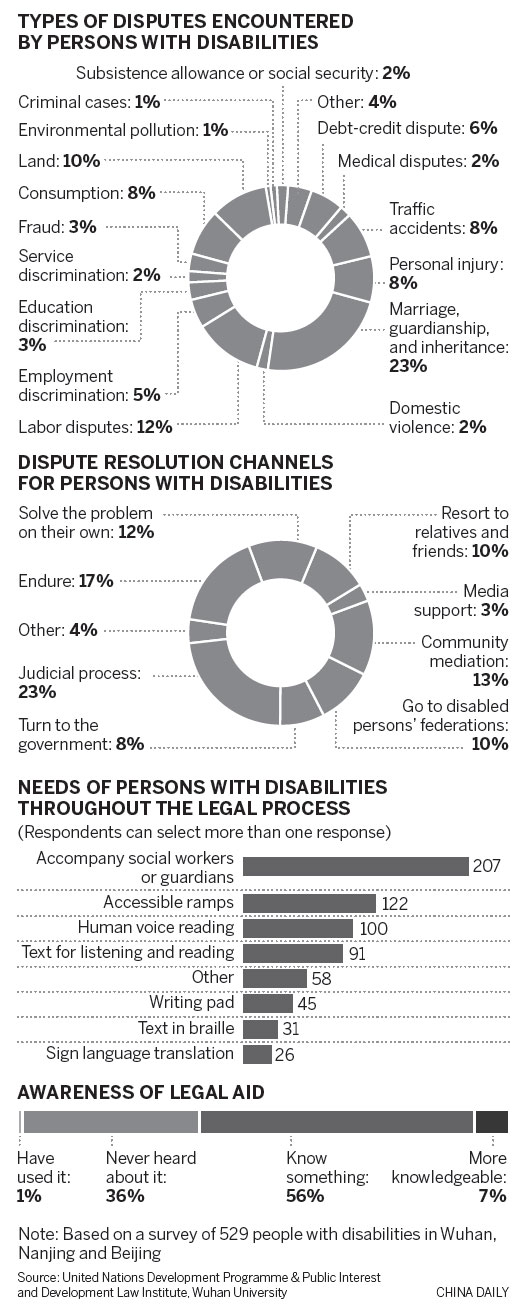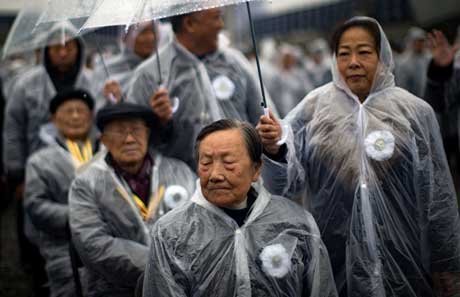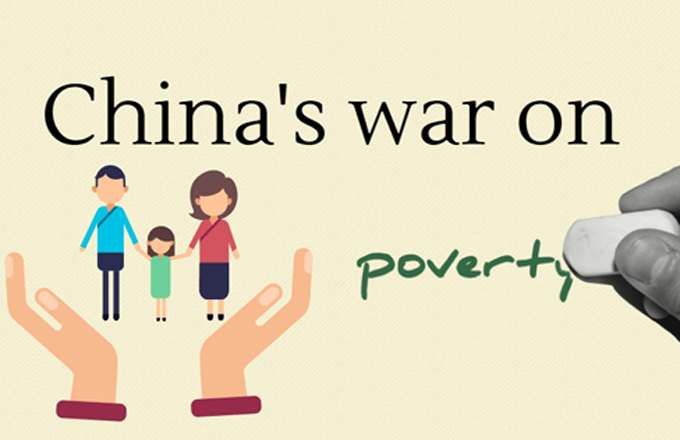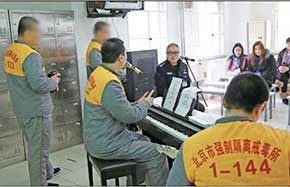Disabilities bring legal difficulties
Limited knowledge, costs and low accessibility make justice system hard for the handicapped

A new China report by the United Nations dove into an area rarely discussed in the life of the nation's 85 million persons with disabilities: How freely can they navigate the country's judicial system?
The research, conducted by the United Nations Development Programme and Wuhan University's Public Interest and Development Law Institute, was released on Friday, one day ahead of the International Day of Persons with Disabilities, which promotes dignity, rights and well-being for the group.
It addressed a long list of existing challenges, including limited legal knowledge that hinders them from using legal services when their rights are infringed, the high expenses of current legal services, the lack of information about free legal aid services, and not enough accessibility and accommodation throughout the judicial process.
The researchers found that though lawyers and legal service workers play a key role in providing legal aid services to people with disabilities, their knowledge and awareness about disability and equality should be improved.
They also saw the "great potential" of local staff at disabled persons' federations becoming grassroots legal advocates, a group they believe could directly improve the quality of legal services that people with disabilities can enjoy.
Wu Di, the project's leader from the UNDP, said working on the program has changed her way of understanding persons with disabilities. By presenting the report to the public, she hoped to raise awareness and eventually bring some changes to better everyone's life.
Yet the lack of access to legal services may be a problem that puzzles many, with or without disabilities.
"Around 6 million cases are reported to the police every year, but only 1 million proceed to the next step. The legal resources are far from enough," said Wang Minyuan, a legal researcher at the Chinese Academy of Social Sciences.
In September, the Chinese government released an action plan to improve the living conditions of persons with disabilities, with a particular focus on individuals in poor rural areas.
China's new guideline on accelerating the process toward modest prosperity in the 13th Five-Year Plan (2016-20) has outlined action to ensure that persons with disabilities enjoy the same livelihood and public services.
For instance, by 2020, all registered persons with disabilities from poor families in rural areas must be lifted out of poverty. The proportion of children with disabilities receiving compulsory education must reach 95 percent by 2020.
Nicholas Rosellini, the UN resident coordinator in China, said the Chinese government's recent actions are "welcome steps toward mainstreaming disability in development and society". He proposed that the UN, the China Disabled Persons' Federation and individuals should play an important role in promoting the rights of persons with disabilities and ensuring accountability.
Today, more than 1 billion people, or approximately 15 percent of the world's population, live with some form of disability. More than 100 million of them are children, who are almost four times more likely to experience violence than non-disabled children, according to Marielza Oliveira, director and representative of the UNESCO Beijing office.
UN Secretary-General Ban Ki Moon said in Beijing in July that "persons with disabilities must become an integral part of national, regional and global thinking and planning, not only in areas that specifically concern them, but in decisions that affect everyone".
Li Lei contributed to this story.





















